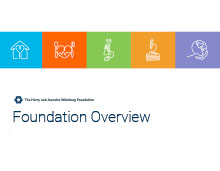It seems surreal that one year has passed since Weinberg Foundation staff began working remotely. When we left the office on Friday, March 13, 2020, and told everyone to begin working from home effective Monday, March 16, we genuinely—wishfully—believed that it would be a temporary situation. None of us could have imagined that a full year later we would still be grappling with such profound changes in the way we work and live.
We don’t need to tell you—COVID-19 has created unprecedented health, financial, educational, and other challenges for every community across the world. The pandemic has disproportionately impacted vulnerable populations, including people experiencing homelessness, low-income workers, older residents who are at higher risk, and low-income families. Moreover, this crisis has only deepened systemic inequities, especially in historically under-resourced Black, Indigenous, and People of Color (BIPOC) communities.
All of these populations are at the heart of the Weinberg Foundation’s mission—to meet the basic human needs of people experiencing poverty. To date, the Foundation has committed a total of $10.5 million in COVID-19 emergency response funding to high-quality, trusted nonprofits within all of the Foundation’s priority communities: Baltimore, Chicago, Hawai‘i, Israel, New York City, Northeastern Pennsylvania, San Francisco, and Rural Communities (primarily rural areas within proximity to priority communities).
As part of its long-term COVID-19 response, the Foundation has committed an additional $7.5 million in grants to three Community Development Financial Institutions (CDFIs). CDFIs provide loans and financial services to communities, particularly communities of color, where conventional financing is typically unavailable or unaffordable. Above and beyond COVID, the Weinberg Foundation believes that Black lives matter and will support efforts to actively and tangibly pursue racial equity and healing to achieve meaningful and transformational change. We will continue to partner with effective community-based organizations—seeking out those that are led by people of color—to advance the work of the Foundation in the areas of housing, health, jobs, and education. The Foundation also will continue to require grantees and partners to demonstrate how they are advancing racial equity in their work. Individually, we will continue to foster internal reflection and growth and to invest in professional development specifically designed to help each Weinberg Foundation employee develop as a racial equity ally. We invite you to read our statement regarding this critical moment for society, as well as to learn more about the Foundation’s COVID-19 emergency and long-term response.
Finally, while the pandemic has precluded any opportunity for the Foundation’s usual, in-person gatherings, we have missed seeing our many friends at Community Gatherings in Baltimore, Hawai‘i, and Israel. As a way of sharing the Foundation’s mission and work, we hope that you will take a few moments to explore the recently updated Foundation Overview.
Maya Angelou once wrote: “The challenging days of my existence may or may not be bright and promising. Stormy or sunny days, glorious or lonely nights, I maintain an attitude of gratitude. If I insist on being pessimistic, there is always tomorrow. Today I am blessed.”
We are grateful that by working together we are perhaps, finally stepping onto the long road to recovery. Thank you for your support and partnership as we continue this difficult journey—one step at a time, one day at a time.
